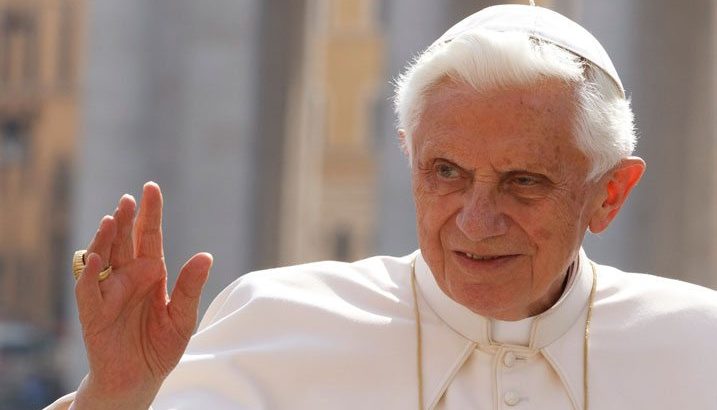The Vatican has insisted that Pope emeritus Benedict XVI did not authorise his name to be given as the co-author of a new book along with Cardinal Robert Sarah on the topic of priestly celibacy.
The book – published in French yesterday – gave the impression that Benedict wrote the defence of priestly celibacy along with the Guinean prelate despite the fact that the contribution of the Pontiff emeritus amounted to just seven pages.
Initial pre-publication publicity for the book provoked controversy, because it seemed to set Benedict in opposition to Pope Francis who is reportedly considering a proposal to permit the ordination of older married men in certain circumstances.
In a statement released on Tuesday, the Prefect of the Papal Household and personal secretary of the Pope emeritus says that Benedict XVI had not authorised the joint signature as co-author of Cardinal Sarah’s essay on priestly celibacy.
Archbishop Georg Gänswein said “I can confirm that this morning, at the indication of the Pope emeritus, I asked Cardinal Robert Sarah to contact the publishers of the book requesting them to remove the name of Benedict XVI as co-author of the book itself, and also to remove his name from the introduction and conclusions.
“The Pope emeritus in fact knew the cardinal was preparing a book”, Archbishop Gänswein added, “and had sent a short text of his on the priesthood”, authorising the cardinal to use it as he wished. But the Pope emeritus “had not approved any project for a co-signed book, nor had he seen and authorised the cover”.
Archbishop Ganswein insisted that “it was a misunderstanding, without questioning the good faith of Cardinal Sarah”.
Francis is said to be considering allowing an exception to priestly celibacy by the ordination of proven married men, so-called viri probati, in the Amazon region in response to severe priest shortages.
Synod fathers
At the end of the Amazon synod, which took place in October, the final document of the synod fathers called for the ordination of married men as priests.
The 33-page concluding document, which does not have magisterial authority, was presented to Pope Francis following the three-week meeting of bishops and representatives from indigenous communities, religious orders, lay groups and charities.
The Pope’s own document on the synod, called a post-synodal apostolic exhortation, is highly anticipated, primarily for how it will respond to that suggestion and others from the synod fathers.


 Pope Benedict XVI
Pope Benedict XVI 